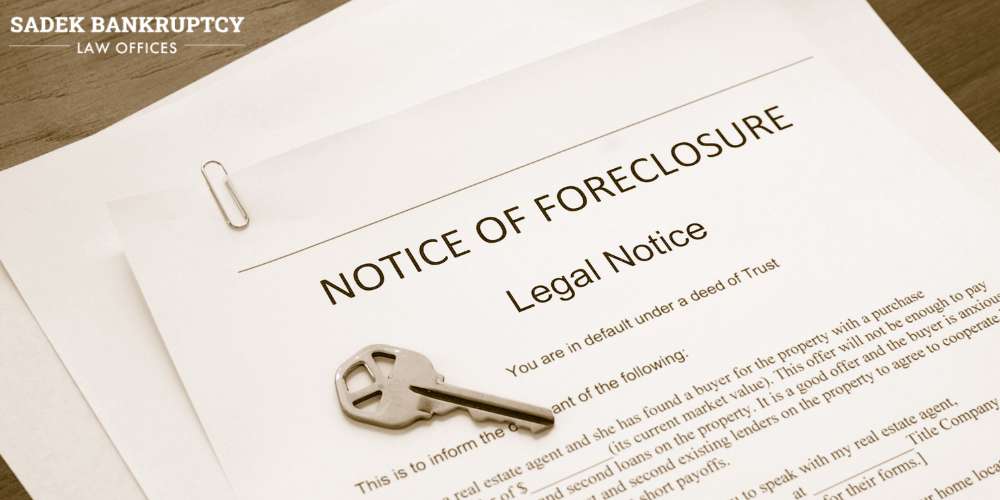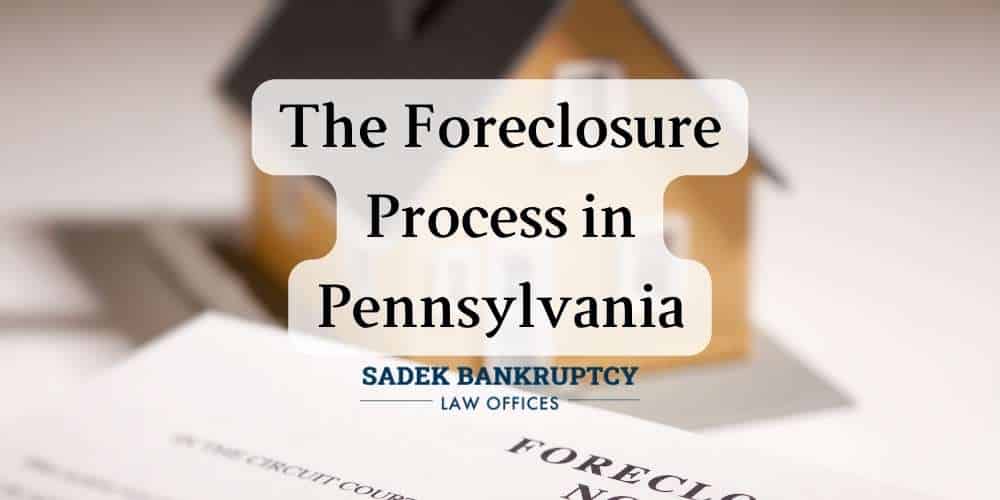Understanding the Foreclosure Process in PA
Many Pennsylvania homeowners who are behind on their mortgage payments find themselves wondering exactly how the process works. We’ve put together step-by-step information to explain how the Pennsylvania foreclosure process happens and what you can do to stop it!
If you’re facing foreclosure, our compassionate professionals are here to help. To schedule a free consultation with us, please call our office at 215-545-0008 today.
What Is Foreclosure?
Foreclosure is a legal process where a lender reclaims a property because the borrower has failed to make mortgage payments. After the lender files for foreclosure proceedings, it typically involves the sale of the property to recover the loan balance amount owed. If you owe money on your mortgage that you can’t afford to pay back, don’t panic. You have options for debt relief, and our Pennsylvania foreclosure defense lawyers are here for you.
Judicial Foreclosure vs Non-Judicial Foreclosures
Judicial foreclosure involves the lender filing a lawsuit in court to obtain a court order to sell the property. This process typically takes longer and allows the homeowner to present their case in court. In a judicial foreclosure, the lender may be able to get a deficiency judgment from the court to collect any money they are owed after the foreclosure sale.
Nonjudicial foreclosures, on the other hand, bypass the court system and follow a set process outlined in the mortgage or deed of trust, usually resulting in a faster resolution. A non-judicial foreclosure can arise from what is called a “power of sale clause” in the mortgage agreement. It essentially allows lenders to foreclose without going to court.
Keep in mind that Pennsylvania is a judicial foreclosure state, meaning that all foreclosures must go through the court system.
Foreclosure vs Pre-Foreclosure
Pre-foreclosure is the stage before the official foreclosure process begins, where the homeowner has missed payments but still has time to catch up or negotiate with the lender. During this period, the homeowner may sell the property, refinance, or seek other solutions to avoid foreclosure.
Foreclosure is the subsequent legal process where the lender takes action to repossess and sell the property due to continued non-payment, aiming to recover the owed debt.
How Does Foreclosure Work in Pennsylvania?

Foreclosure procedures are similar across many states, but it’s important to understand how the process works in your state. In Pennsylvania, it will be a judicial foreclosure, as all foreclosures must go through the court system. Pennsylvania law also requires lenders to give borrowers a 30-day notice of intent to foreclose. This provides the borrower an opportunity to resolve the defaulted loan.
How Long Does Foreclosure Take in Pennsylvania?
Generally, the foreclosure process in Pennsylvania can take anywhere from a few months to longer than a year. This depends on the circumstances of the case and whether the borrower challenges the foreclosure. If the borrower were to fail to respond to the notice of intent to file foreclosure, this may result in a default judgment in the lender’s favor.
When Is It Too Late to Stop Foreclosure in Pennsylvania?
In Pennsylvania, you can stop a foreclosure sale at any time before the sale actually occurs. However, this may require the borrower to pay off their remaining debt, as well as any late fees that have accrued. But paying what you owe isn’t the only option. Bankruptcy can stop foreclosure in its tracks, giving you the legal protection of the automatic stay.
Pennsylvania Foreclosure Process Timeline
Consequences of Missing a Mortgage Payment
When you take out a mortgage to get a house, you sign both a promissory note and a mortgage contract. These papers promise that you will pay back the money owed in a certain manner and also give the lender the chance to sell your house to recoup payments through foreclosure if you can’t meet your payments. Most lenders typically offer a 10-15 day grace period where you can catch up; however, if you don’t make the payment within this timeframe, you may be fined some late charges.
Missing Multiple Mortgage Payments
After you have missed more than one payment, you can expect your lender to start trying to get in touch with you through phone calls and letters to resolve the missed payment. Laws make it necessary for lenders to contact you within certain time frames unless you’re in the midst of bankruptcy or you’ve asked not to be contacted. Most loans are set up to require that the lender send out a breach letter that lets you know when your mortgage falls into default.
Starting Foreclosure
To have your house foreclosed upon, you typically need to have been 120 days past due on your mortgage payments. Occasionally, lenders can expedite the process if a due-on-sale clause has been violated. A due-on-sale clause is a provision in a mortgage contract that requires the mortgage to be repaid in full upon a sale or conveyance of a partial or full interest in the property that secures the mortgage.
Before the foreclosure process can actually start, the lender will need to send out a notice of their intent to foreclose 30 days in advance. This is the timeframe when homeowners can reach out for help and potentially work to get their payments caught up. If the homeowners choose to talk to an approved credit counseling agency, the foreclosure will be postponed an additional 30 days from the meeting. However, if the homeowners are unable to catch up on payments within this short time span, bankruptcy may be the better solution.
Filing the Foreclosure
If you don’t take any action to make payments, the lender can take the foreclosure to court. The homeowner can respond to the lawsuit, which then goes to court. If the court rules against the homeowner in a summary judgment, their property will be sold in a foreclosure sale. On the other hand, if the homeowner doesn’t respond to the lawsuit, the court will automatically give the green light for the foreclosure sale to begin.
What’s the Best Option to Avoid Foreclosure?

If you’re behind on your payments and your home is in foreclosure, it can be difficult to know what to do! You may have seen various foreclosure scams online claiming to offer simple solutions, but don’t be fooled. If you are able to come up with the money to get your mortgage up-to-date along with all fines and interest, you can save your home by paying it within an hour of the start of the foreclosure sale.
If the homeowner is unable to make that payment, there is a better option. By consulting with a bankruptcy attorney, a homeowner can work to alleviate their debt and save their home through the foreclosure process. Filing for bankruptcy will put an automatic stay on your home’s foreclosure and will allow you to remain in it until your debts are figured out.
While the foreclosure process can seem like being up against a brick wall for those struggling financially, there is hope! By working with a good bankruptcy attorney, you can learn about your best options to stall the process, regain control of your finances, and stay in your home!
Contact a Pennsylvania Foreclosure Defense Lawyer at Sadek Law Today
Contact one of our bankruptcy lawyers to discover any steps that your lender might have missed, learn more about your options, and see how bankruptcy can help you keep your house. No matter how dismal things may seem, our bankruptcy attorneys can help you discover a better option! Call us as soon as possible at 215-545-0008 to learn more about your options.





